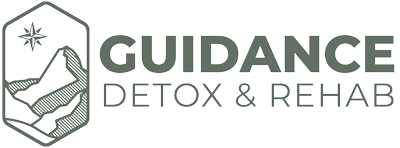Drug or alcohol addiction is a complex, chronic disorder characterized by compulsive drug seeking and use despite harmful consequences. Even when individuals have achieved sobriety and are experiencing positive life circumstances, they may still face the risk of relapse.
This article explores the surprising reasons behind relapse during positive times, including overconfidence, letting down one’s guard, and the emotional associations between celebration and substance use.
The Nature of Addiction and Recovery
Contrary to common misconceptions, overcoming addiction is not simply a matter of willpower, as repeated drug use causes persistent changes in the brain that drive compulsive drug-seeking behavior and make relapse a common part of the recovery journey. Recovery itself is a deeply personal and often non-linear process, requiring humility, sustained motivation, and the restoration of meaning and purpose in one’s life
Relapse, or a return to substance use after a period of abstinence, is a common occurrence in the recovery journey. Estimates suggest that 40-60% of individuals experience a relapse within a year of completing addiction treatment.
Long-term recovery from alcohol and drug use requires ongoing effort and vigilance. This may involve participating in support groups, individual therapy, and other forms of continuing care to achieve recovery.
Common Relapse Triggers Even When Life Seems Good
People might think relapse only happens when life is tough, but that’s not always the case. Even when things seem to be going well, emotional states, environmental factors, and psychological patterns can still trigger drug or alcohol use.
This phenomenon can be attributed to several factors:
Psychological Triggers
Celebrations and positive life events may involve exposure to addictive substances, reinforcing mental associations between substance use and reward or pleasure.
Neurobiological Changes
The neurobiological changes underlying addiction create persistent urges and cravings that can be activated by triggers regardless of external circumstances.
Environmental and Social Triggers
Common environmental triggers at social events include the presence of the substance, people using it, and places or activities associated with past use. Sensory cues like the sight, smell, or taste of alcohol can activate powerful conditioned responses and cravings, even when an individual’s life is otherwise stable. Social pressure, whether overt or perceived, to use substances to celebrate or fit in can also trigger relapse.
Stress and Emotional Triggers
Stressful life events, negative emotions, or mental health issues can act as triggers for relapse. Individuals may turn to substances as a coping mechanism, even when they have previously achieved sobriety.
Overconfidence and Complacency
When life is going well, some individuals may develop a false sense of security and believe they can control their substance use. Misconceptions about the ability to control substance use, such as having “just one drink” at a celebratory event, may be just overconfidence at work. This overconfidence can lead to risky behaviors and, ultimately, relapse can happen.
Lack of Coping Skills
Addiction often develops as a way to cope with underlying issues. If these issues are not addressed during recovery, individuals may struggle to manage stressors and emotions without turning to substances.
To maintain sobriety and prevent relapse, individuals in recovery should engage in ongoing support, such as therapy, support groups, and relapse prevention planning. Identifying personal triggers, developing healthy coping mechanisms, and maintaining a strong support network are essential for long-term success in addiction recovery.
Internal Challenges Behind Relapse During Good Times
Neglecting self-care practices and relying solely on external factors for well-being can rekindle underlying addiction urges.
Emotional Relapse
Emotional relapse is a phase in the addiction recovery process where an individual isn’t actively thinking about using substances, but their emotional state and behaviors may increase the risk of future relapse. This can occur even when an individual appears to be making progress in their recovery.
Unresolved underlying issues, such as past traumas, mental health disorders, or unhealthy coping mechanisms, can contribute to emotional relapse.
Celebrating milestones without the use of substances is an important aspect of maintaining sobriety.
Loss of Recovery Focus
Individuals in recovery may experience a false sense of security when life is going smoothly, leading to complacency and a decreased emphasis on maintaining their recovery strategies. This loss of focus can make them more vulnerable to relapse.
Positive associations with substance use and underlying addiction urges can persist long after the initial detoxification and treatment process. These associations and urges can be triggered by various environmental and emotional factors, even when an individual has achieved a period of sobriety.

The Role of Stress and Life Changes
The stages of relapse (emotional, mental, and physical) can be triggered by stress and life changes. Emotional relapse may involve bottling up emotions, isolating oneself, or neglecting self-care. Mental relapse is characterized by cravings, fantasizing about using, and planning a relapse. Physical relapse is the act of consuming the substance.
Research has shown that stressful events and transitions can increase the risk of relapse, as they disrupt established routines and coping mechanisms.
Positive changes, such as a new job or relationship, can be just as destabilizing as negative ones, like the loss of a loved one or financial difficulties.
Understanding the stages of relapse helps individuals recognize warning signs early, maintain awareness during times of change, and apply effective coping strategies before a slip becomes a full relapse.
Strategies to Prevent Relapse When Things Are Going Well
Successful long-term addiction recovery requires the development of effective relapse prevention strategies, even during periods of stability and well-being.
To mitigate these risks, individuals in recovery should remain engaged in ongoing support activities, such as attending support group meetings, maintaining regular contact with a sponsor or therapist, and practicing healthy coping mechanisms.
It is essential to recognize that relapse is part of recovery and that recovery is an ongoing process that requires continuous effort and vigilance. Relapse doesn’t indicate failure, but rather serves as a signal to re-evaluate one’s recovery plan and make necessary adjustments.
If a relapse occurs, it’s crucial to seek help promptly, which may involve returning to a treatment program or intensifying one’s engagement in support activities.
Final Thoughts from Guidance Detox and Rehab
Relapse can occur even when life seems to be going well—a reminder that recovery involves more than just external improvements. By staying self-aware, engaged in support systems, and committed to healthy routines, individuals can better manage these challenges. Understanding relapse is a key step in supporting long-term recovery.
At Guidance Detox and Rehab, our medically supervised alcohol and drug detox programs offer a secure, compassionate environment where withdrawal is managed with expert care. By starting recovery with the right support, you reduce the risk of relapse and increase your chances of building a stable, alcohol-free future.
